Julian Agyeman
H-index:
37
Just got the beautiful cover design of @alisonhopealkon.bsky.social and my companion to our 2011 'Cultivating Food Justice' published by @mitpress.bsky.social It's due out in February next year. Mark your calendars!

Co-production has limits, and can serve to reproduce power structures if emptied of its political, transformatory intent, but we must understand its emancipatory potential as an incremental strategy that has the power to transform urban planning practices. www.ucl.ac.uk/bartlett/pub...

Co-Production of Knowledge in Action: Emancipatory Strategies for Urban Equality
This open-access book examines the emancipatory potential of knowledge co-production for more equal cities, drawing on experiences from Africa, Asia and Latin America. Published by UCL Press.
www.ucl.ac.uk
This article offers a new framework to classify internal and external food sharing governance elements into 8 categories: structural factors, regulation, resources, discourses, relations between social actors, participation, knowledge, and internal organisation. www.tandfonline.com/doi/full/10....
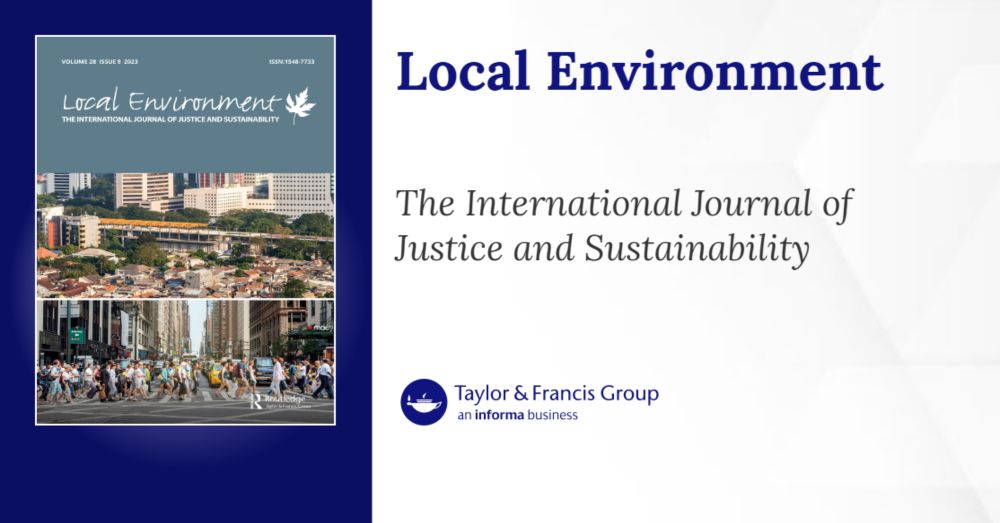
Food sharing governance in European cities: insights from a scoping review
Food sharing initiatives (FSI) are rapidly growing in urban areas and present new opportunities to shape more sustainable urban food systems through collaborative efforts. These initiatives operate...
www.tandfonline.com
Cities across the US are prioritizing investments in revitalization/walkability/placemaking. What about public restrooms? If they are well-managed/usable, it signals to visitors and residents alike that the surrounding area is safe/dignified and regularly cared for www.planetizen.com/features/136...

Public Restrooms: The Hidden Infrastructure of Civic Trust
Want to know if a city is thriving? Start with a bathroom break.
www.planetizen.com
Forest transitions are not only ecological but cultural and political processes that negotiate power, identity, and belonging. Urban forest initiatives should prioritise community agency/equity, challenge exclusionary legacies and advance more inclusive frameworks www.tandfonline.com/doi/full/10....

Legacies of a “great simple country” forest transitions, urban greening, and the fallacy of trees as a tool of democratisation
This paper examines the evolving values attributed to trees and green spaces in northeastern U.S. cities. Historically framed as antagonists in land use change, cities are sites of forest histories...
www.tandfonline.com
We turn to the theory and practice of co-production as one possible intervention into how the relationships between Indigenous and non-Indigenous placemakers could be conceived and enacted in the urban environment. www.tandfonline.com/doi/full/10....

On belonging and becoming in the settler-colonial city: Co-produced futurities, placemaking, and urban planning in the United States
With a few notable exceptions, settler-colonial theory has not been applied to the study of U.S. cities and urban planning. Settler-colonial theory is a relatively new field of scholarship that int...
www.tandfonline.com
Spatial processes play a critical role in creating/shaping/perpetuating inequalities/oppression. We advocate for spatial justice in climate action and offer 8 principles to support a critical perspective on climate change in urban contexts rgs-ibg.onlinelibrary.wiley.com/doi/pdf/10.1...

Everything about climate change is disproportionate: Principles for spatial justice in urban climate action
The figure illustrates the eight principles for spatial justice in urban climate action proposed in the paper: 1) Account for cumulative effects; 2) Go beyond simplistic demographics; 3) Connect to c...
rgs-ibg.onlinelibrary.wiley.com
by Julian Agyeman — Reposted by: Prakash Kashwan
Unequal access to renewables, disparate light distribution, and poorly-maintained infrastructure were key concerns. Fears about safety, unreliable energy infrastructure, and risks like fires shaped participants' visions for the future. www.sciencedirect.com/science/arti...

Energy equity, transitions, and futures: Photovoice insights from Latinx community members in Boston
Energy equity remains a pressing issue in urban areas, particularly for marginalized communities like Boston's Latinx population. This study examines …
www.sciencedirect.com
My 27th Department of Urban and Environmental Policy and Planning (UEP) student Orientation! 70 1st year students aiming to become "Practical Visionaries" - people who dream big, but have their feet firmly on the ground. When I started, we had 1, now we have 4 degrees and we have double the intake!

Take a look at our fantastic Cities@Tufts fall 2025 Virtual Colloquium lineup! First up on September 24, 12-1 Eastern via Zoom, is Dr Monica White (UW Madison). Check back for sign up details for all events.


Our research underscores the potential for parks and reserves to serve as sites of cultural and environmental restoration, enacting ahi kā and reinforcing the vital connection between Māori identity and whenua (land). www.tandfonline.com/doi/full/10....

Indigenous rights and managed public land: a critical treaty analysis of parks and reserves in New Zealand
This research critically examines the extent to which the Reserves Act 1977, the primary legislative framework governing many parks and reserves, especially those associated with territorial local ...
www.tandfonline.com
Planting trees can cool the air 35% more than installing cool roofs in places where trees can actually be planted. But many of the best places for new trees in Boston aren’t in the neighborhoods that need help. In these neighborhoods, reflective roofs were better. theconversation.com/urban-trees-...

Urban trees vs. cool roofs: What’s the best way for cities to beat the heat?
Cities are seeking low-cost ways to ease the heat island effect. Researchers found benefits and trade-offs in two popular options, but they vary by city and even neighborhood.
theconversation.com
Two Boston streets at 4:30 p.m. recently: Lewis Place, 94 F, Dudley Common, 103 F. Both streets were hot, close together, but the temp on one was far more dangerous to health/well-being. These are islets in the urban heat island. What strategies should we adopt? theconversation.com/inside-an-ur...

Inside an urban heat island, one street can be much hotter than its neighbor – new tech makes it easier to target cooling projects
New technologies are making it easier to find these urban heat islets, opening the door to new strategies for efficiently improving community health.
theconversation.com
Gone is Amtrak’s railfan-in-chief Biden but NextGen Acela promises an American rail renaissance in a moment when federally sponsored trains are fighting for their lives, as Biden’s infrastructure ambitions have fallen to an administration bent on cutting costs. theconversation.com/the-new-next...

The new NextGen Acela trains promise faster travel and more seats – but arrive as US rail faces an uncertain future
The French-designed, American-manufactured NextGen arrives years late and in a moment when federally sponsored trains are fighting for their lives.
theconversation.com
This paper identifies “informational justice” as a fourth tenet of Environmental Justice, distinct from distributional, procedural and recognitional forms of justice. It identifies trusted information as foundational although under-acknowledged in the literature. www.tandfonline.com/doi/full/10....

From the “just transition” to the “trust transition”: rethinking justice in community energy projects
While there has been much interest in community energy (CE) within policy and academia, political interest and support have fluctuated in most European countries, depending on the political orienta...
www.tandfonline.com
There is a clear correlation between the number of people of colour living in a neighbourhood and the likelihood of it facing extreme heat during periods of hot weather. This is why the UK government, UK cities should adopt a climate justice-based policy approach. www.carbonbrief.org/analysis-eng...

Analysis: England’s most ethnically diverse areas are 15 times more likely to face extreme heat - Carbon Brief
Neighbourhoods in England that are home to the most minority-ethnic people are 15 times more likely to face extreme heat than the least diverse areas
www.carbonbrief.org
The results show that, for the highest density images shown to participants, there was a statistically significant negative relationship with disgust. This means that people with higher disgust sensitivity found the highest density images significantly less appealing.
nextcity.org/urbanist-new...
nextcity.org/urbanist-new...

Disgust: The Unexpected Psychological Reason Why Some People Dislike Density
Op-ed: New research suggests that people with higher disgust sensitivity find higher densities less appealing. What does that mean for urban planners?
nextcity.org
Boston’s 2030 Climate Action Plan (CAP) draft is now live. It includes a preliminary list of high-impact climate action strategies and the draft Climate Justice Framework. The next draft - with metrics, partnerships, and implementation pathways - is due Fall 2025. www.boston.gov/departments/...

Boston's Climate Action Plan
We are committed to shaping a vibrant, sustainable, and equitable future for Boston. We're currently taking steps to address climate change by both reducing carbon pollution and strengthening our resi...
www.boston.gov
Indigenous Peoples' exclusion from carbon market decision making is ongoing. Platformed on substantial inequities, marginalisation, and racism, we ask if carbon markets are a new form of colonialism? Are there potential opportunities for Indigenous Peoples? www.thelancet.com/journals/lan...

Carbon markets: a new form of colonialism for Indigenous Peoples?
The interconnected and compounding climate change and biodiversity crises have led
to increased urgency in moving towards transformational change within how national
and international sustainability e...
www.thelancet.com
From West Oakland to San Francisco’s Bayview-Hunter’s Point neighborhood, the Bay Area has a long history of displacement that has largely been forgotten. The work of a state-wide reparations task-force, as well as local reparations efforts are now shining a light www.theguardian.com/us-news/2025...
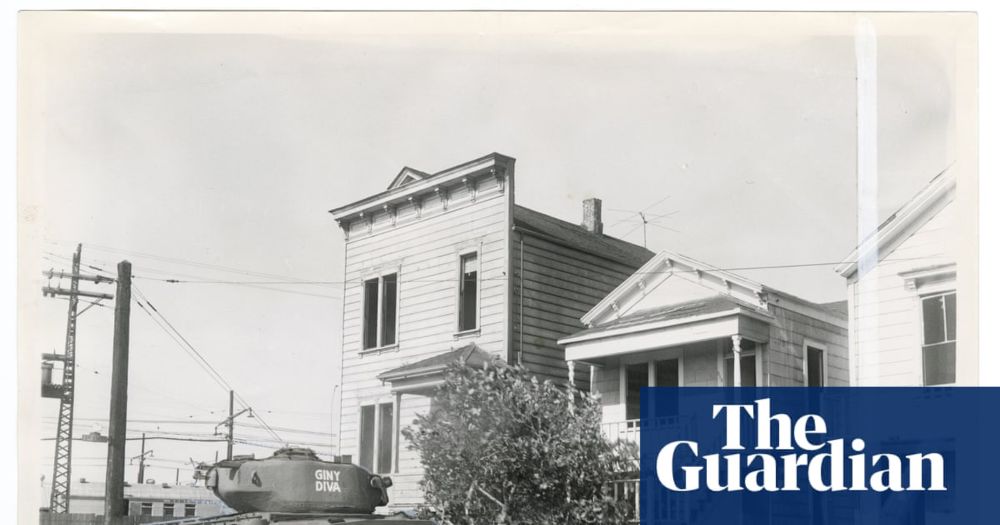
‘Our dreams were shattered’: the Black Californians forced from the city they built
In the 60s, the white city of Hayward removed residents of Russell City. Now a $1m reparations fund has been approved – and important histories are coming to light
www.theguardian.com
How is urban AI altering urban metabolism? Through an Urban Political Ecology lens focusing on energy, water and labour we discuss how the urban metabolisms altered by AI are reproducing uneven dynamics of development leading to different forms of injustice. journals.sagepub.com/doi/full/10....
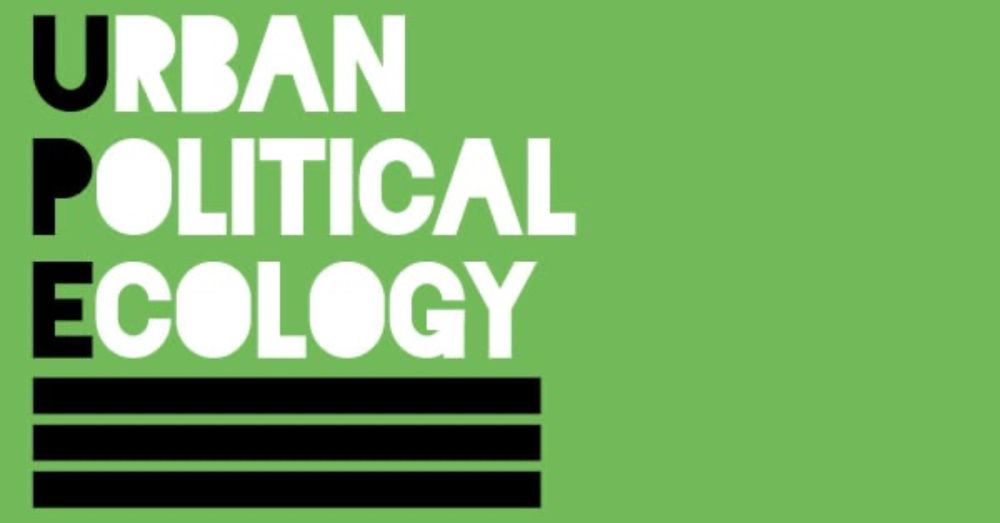
The nature of AI: Metabolism, energy, water, labour and justice in the urban political ecology of artificial intelligence - Federico Cugurullo, Federico Caprotti, Jennie Day, Shona Geoghegan, Casey R ...
The integration of vast volumes of Artificial Intelligence (AI) technology into the built environment is changing the metabolism of urban spaces. Due to the pre...
journals.sagepub.com
Reposted by: Julian Agyeman
Dramatic fall in London’s levels of deadly pollutants after Ulez expansion
People in capital breathing much cleaner air, with significant improvements in capital’s most deprived areas
www.theguardian.com/environment/...
People in capital breathing much cleaner air, with significant improvements in capital’s most deprived areas
www.theguardian.com/environment/...

Dramatic fall in London’s levels of deadly pollutants after Ulez expansion
People in capital breathing much cleaner air, with significant improvements in capital’s most deprived areas
www.theguardian.com
I tried Waymo in Tempe, AZ. It works there, from a technical standpoint. A critical difference is that Boston’s streets are challenging. The city lacks a traditional grid system, has many narrow one-way streets, and incorporates heavy pedestrian and cyclist traffic. www.boston.com/news/local-n...
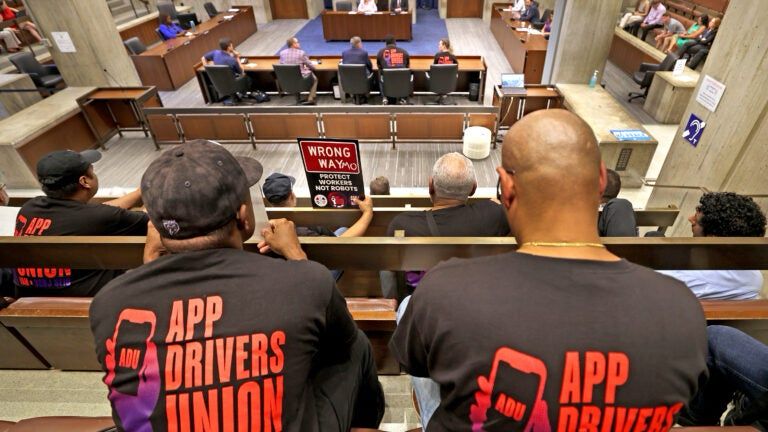
Waymo and its self-driving cars face steep opposition in Boston
Waymo recently mapped the city's streets, prompting officials and drivers to sound the alarm over self-driving cars.
www.boston.com
What if our civic infrastructure was sentient!? "We park benches - donated, commissioned, old, new, flaking and freshly painted – remain an unsung player of public life. I’ve seen crying babies, sore knees, spilled coffees, mudpies, quiet cries – two marriage proposals.." monocle.com/affairs/urba...

My life as a park bench - Monocle
Have you heard? You humans are rethinking the very function that we benches have performed so honourably for centuries. It’s...
monocle.com
Last August city mayor @wutrain.bsky.social set up the US’s first Office of Climate Resilience. “We needed an office solely focused on delivering climate resilience infrastructure, because otherwise it won’t get done,” says Brian Swett chief climate officer. www.theguardian.com/environment/...
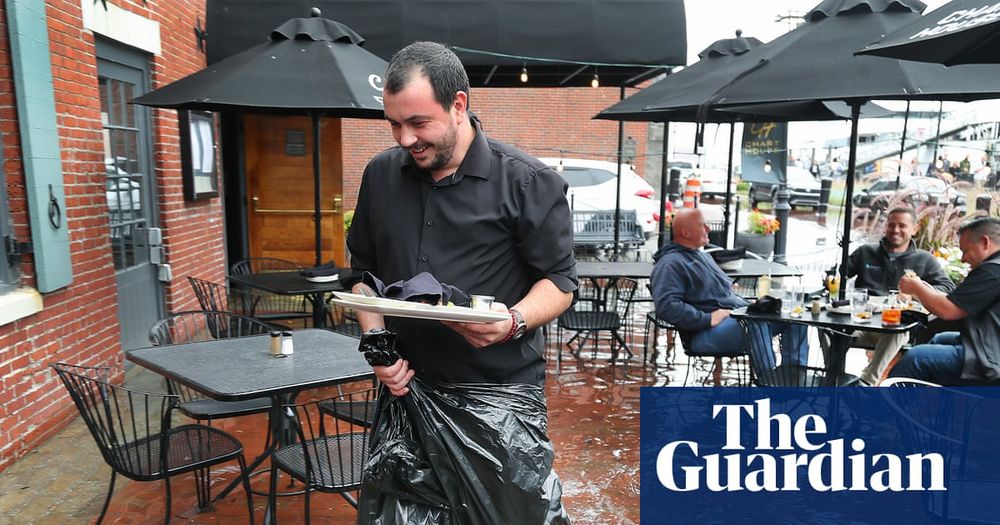
How flood-ravaged Boston took on the climate deniers – and won
As the Trump administration dismisses global heating, the coastal city is getting on with becoming one of the most climate resilient in the world. Here’s how
www.theguardian.com
Thank you. What you said means everything to me. What was your real name?!
Thrilled to be part of the international launch of the JUST centre at Manchester University @justcentre.bsky.social last week alongside professors Sherilyn MacGregor, Lucie Middlemiss, Rebecca Willis and Stefan Bouzarovski. www.youtube.com/watch?v=ArCO...
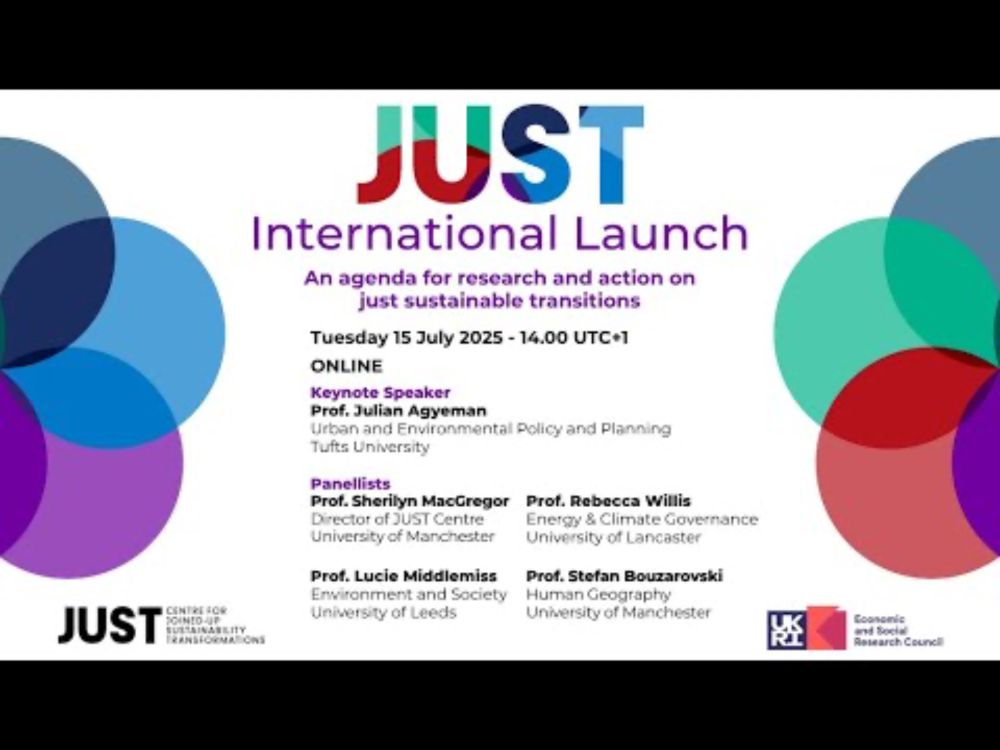
JUST International Launch Webinar
YouTube video by JUST Centre
www.youtube.com
Do people from ‘less developed countries’ need to be socialised into adopting household sustainability practices? Policy makers should consider more elastic notions of household sustainability, to better fit the lifestyles/motivations of immigrant communities. www.sciencedirect.com/science/arti...
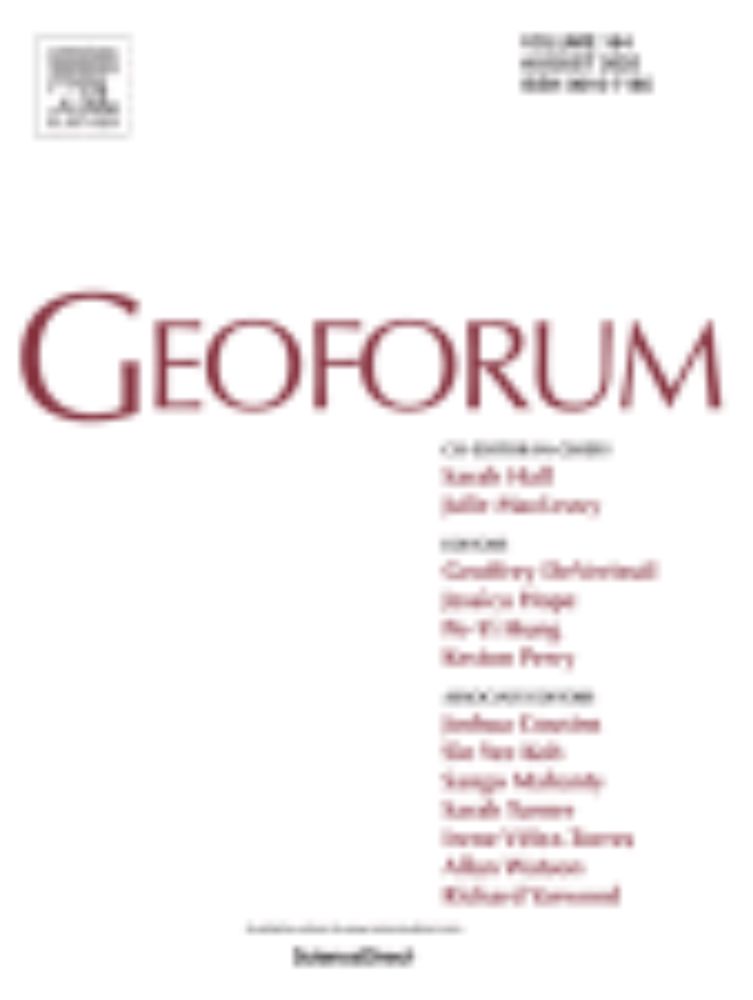
‘It’s what I’ve always done’: Continuity and change in the household sustainability practices of Somali immigrants in the UK
This paper explores the household sustainability practices of people who have migrated from the Global South to the Global North, by studying how Soma…
www.sciencedirect.com
There’s a tipping point where more driving leads to deeper unhappiness. While having a car is better than not for overall life satisfaction, having to drive for more than 50% of the time for out-of-home activities is linked to a decrease in life satisfaction. www.theguardian.com/us-news/2024...
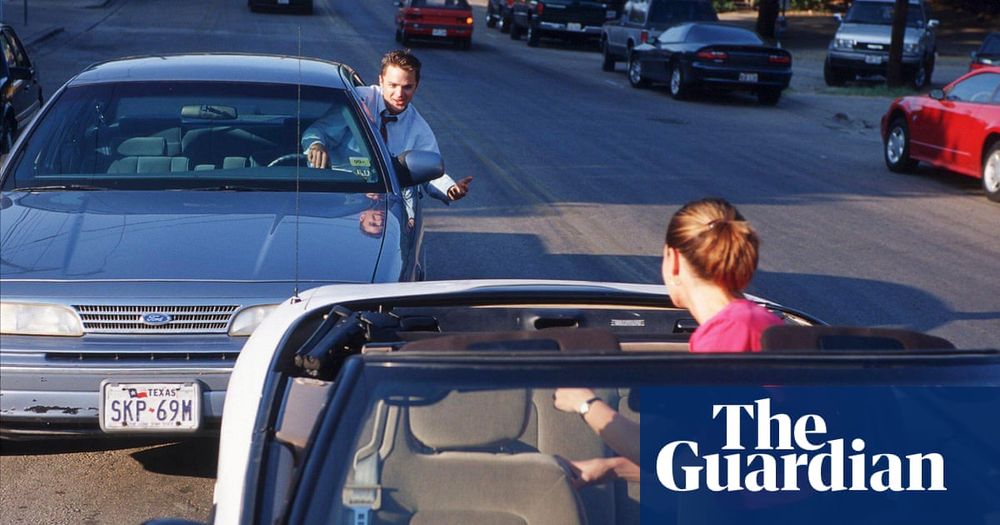
How extreme car dependency is driving Americans to unhappiness
A car is often essential in the US but while owning a vehicle is better than not for life satisfaction, a study has found, having to drive too much sends happiness plummeting
www.theguardian.com
Despite nationwide, bipartisan skepticism of govt. and tax increases, Seattle’s voters show, in light of a severe affordability crisis, a new role for the public sector and a new, dedicated fiscal revenue stream for housing is not only necessary, but possible. theconversation.com/from-seattle...
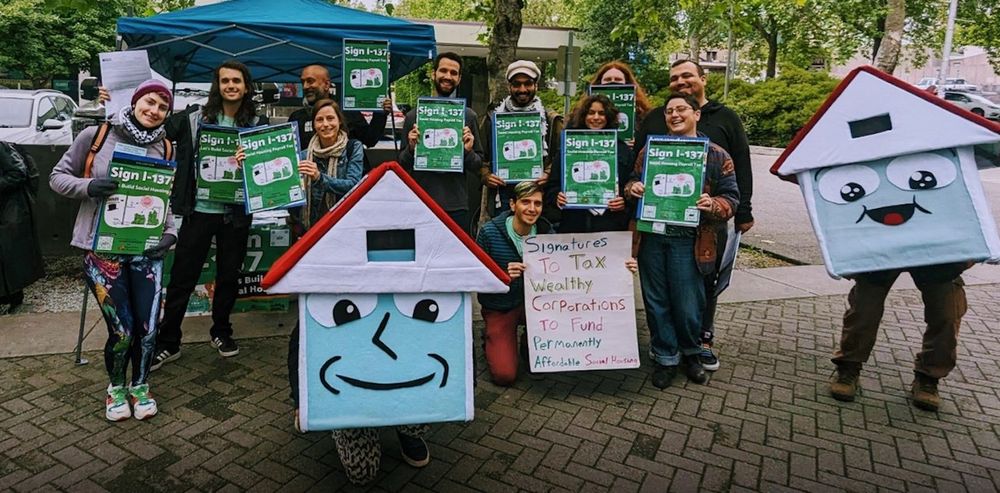
From Seattle to Atlanta, new social housing programs seek to make homes permanently affordable for a range of incomes
Americans are realizing that the country’s two-tiered system of market-rate housing and government-operated, low-income housing isn’t doing the trick.
theconversation.com